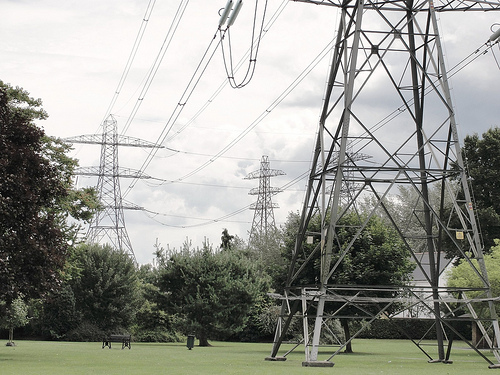The Energy Networks Association, mouthpiece for the distributed network operators (DNOs) who operate the UK’s energy infrastructure, has outlined 10 priority areas for the next government.
The ENA has published its priority areas in General Election 2015: The Agenda for Energy Networks, which it claims will ensure secure and affordable energy infrastructure. All in all, the ENA is calling for: stability of regulatory environment, investment in skills, support a competitive market for connections, ensure the smart meter roll-out meets the needs of DNOs, recognise the role of gas in our transition to a low-carbon grid, explore heat networks, help networks combat fuel poverty, ease the hindrance of street work barriers, double UK interconnector capacity; and outline a long-term infrastructure investment plan.
David Smith, chief executive of ENA explained why the company feels the areas outlined above are so crucial to the future of UK energy, he said: “Our energy networks underpin all aspects of life in modern society, and the conversations around their future should involve the widest possible group of stakeholders.
“New MPs will need to be engaged in the energy debate over the next Parliament and beyond and ‘The Agenda for Energy Networks’ sets out ten requirements to help networks deliver for customers through high performance and lower costs.”
The association’s focus on gas is particularly interesting, with the ENA pointing out that 85% of domestic properties currently use gas. The ENA is calling on the new government to extend the renewable heat incentive (RHI) past its current April 2016 deadline. In addition, the ENA is asking the government to encourage biomethane injection into the grid to “provide a level playing field between the use of biomethane for injection and electricity generation”.
The ENA also confirmed that, should a new government wish to pursue shale gas, the networks “will be on hand to play a central role in facilitating shale gas and connecting it to the grid”.
The full list of the ENA’s 10 priority areas for the new government to act on are outlined below:
Stability of regulatory environment
Maintain a stable regulatory regime for energy networks, as a vital prerequisite to meeting a significant investment challenge.
Skills
Support science, technology, engineering and maths (STEM) education and high quality apprenticeships to bridge a skills gap which has the potential to be the biggest barrier to innovation in energy networks.
Connections
Work with network operators to guarantee a healthy and competitive market in electricity connections whilst ensuring the interests of current and future users of the network are protected.
Smart meters and smarter networks
Continue to champion innovation in energy networks and ensure that the smart meter roll-out meets the needs of energy network companies.
Future of gas
Recognise the importance of gas, and our gas network both in an affordable, secure, low carbon transition and as part of a long-term sustainable energy mix.
Heat networks
Work with the gas networks to explore the appropriate development of heat networks in the most suitable areas.
Fuel poverty and vulnerable customers
Support energy networks in continuing to play a crucial role in combating fuel poverty and meeting the needs of vulnerable customers.
Street works
Ensure that the regulation of street works does not act as a barrier to proper maintenance of vital infrastructure.
Interconnectors
Facilitate the doubling of UK interconnector capacity in the interests of customers.
A long-term infrastructure investment plan
Create the right conditions to deliver an effective and affordable, long-term infrastructure investment plan






